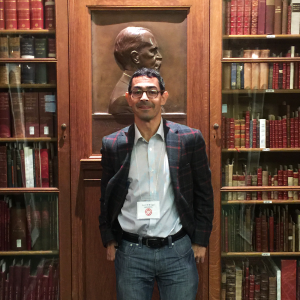Takeaway
Achieving greatness in any field is not only about talent or practice; it’s also about studying the successes of those who are exemplary. In medicine, observing and analyzing the approaches of admirable colleagues can allow us to grow and evolve toward being more clinically excellent.

Lifelong learning in clinical excellence | February 12, 2025 | 1 min read
By Scott Wright, MD, Johns Hopkins Medicine
Ron Friedman’s “Decoding Greatness” offers a compelling alternative to the traditional views on achieving success. The author states that excellence isn’t an unattainable ideal reserved for the gifted few. It can be achieved by anyone truly committed to their growth and development. Below are some key insights from the book.
Beyond talent and practice
The book challenges the conventional wisdom that greatness stems solely from innate talent or extensive practice (like the 10,000-hour rule). Friedman introduces a “third path” to success: reverse engineering. This involves studying successful individuals, dissecting their methods, and adapting those strategies to one’s own goals.
After we finish training in graduate medical education, it’s extremely rare for us to directly observe our colleagues. While everybody is very busy, a lot can be learned from keenly watching one of our great peers—this can be accomplished when one of our patients no shows.
There are other creative ways to learn from superb colleagues. For example, read their patient experience data or review their quality metrics / dashboards. What you uncover can be followed by curious questions about their approaches or secrets.
The power of reverse engineering
By analyzing successful role models, we can identify techniques that drive exceptional performance. Although healthcare professionals might think they don’t often get to see their colleagues in action, we can learn from them across the following contexts:
1. Discussions about patients with our peers or interdisciplinary teams
2. Stories shared at Grand Rounds and conferences
3. Reading the notes of our peers and getting a sense of how they’re thinking about or approaching specific clinical challenges
4. Reading stories about exemplary care on platforms like CLOSLER
We can all move toward excellence by reflecting on our actions, learning from others, and proactively charting our own path forward.
This piece expresses the views solely of the author. It does not represent the views of any organization, including Johns Hopkins Medicine.

